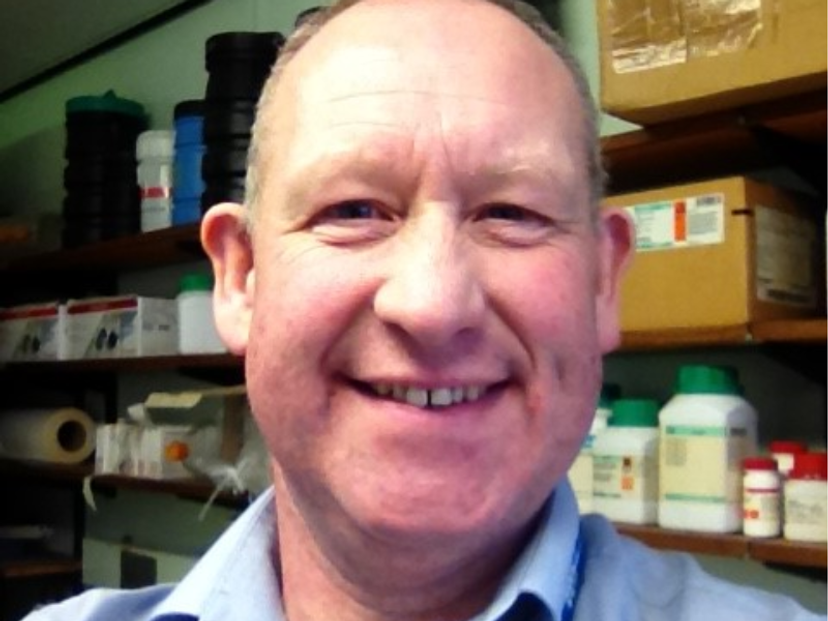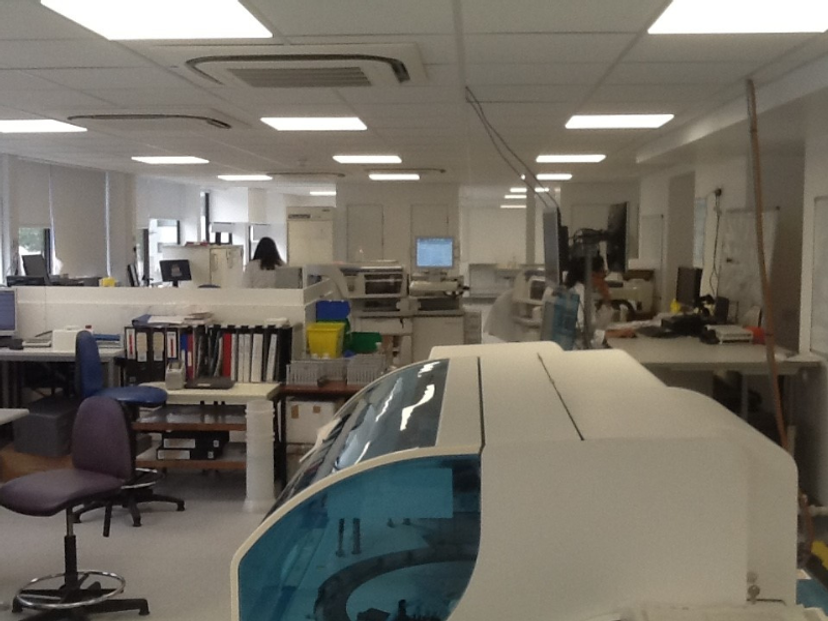24 hours in the life of an NHS clinical biochemist
5 Nov 2024
Dr. Christopher M. Pitt, works at a large district hospital at NHS Ayrshire & Arran, Scotland
In this guest blog post, submitted as part of the global CLINICAL24 conversation, Dr. Christopher M Pitt tells us about a typical day in his role as a clinical biochemist in the NHS, UK. Find out more about this varied job which involves many different responsibilities, from quality control and student mentoring, to providing clinical support to the doctors/physicians in the hospital and in the community.
About my job as a clinical biochemist
I’m a clinical biochemist in a large district general hospital at NHS Ayrshire & Arran, Scotland and a member of the Royal College of Pathologists. My role involves clinical, research, teaching and service quality.
My typical day as a clinical biochemist
08:00 I start with oncology immunofixes which could take an hour and includes reviewing the patient’s medical notes. I need to know, for instance, if patients are on daratumumab. I also plan the rest of my day. I think who I need to spend time with (quality manager? Audit team? Finance lead?) and who else is in the lab doing what. I take an interest in what maintenance etc is needed and whether the manufacturer’s engineers are on-site.
Today, I want to check-in with my quality officer. We’re planning a data collection for our QC review and I want to try out a mathematical model which will help our accreditation evidence and may also produce a publication.

The clinical chemistry department, NHS Ayrshire & Arran, Scotland where Dr. Pitt works
I review our external quality assessment (EQA) performance. I like a deep dive on the chemistry of our assays together with evaluating the clinical utility of our work.
I review papers for three journals. Today, I want to test a review model that one of the senior editors showed me. I want to understand the limitations and applications of the model.
This is an exciting day that sees me teach junior doctors about research. I’ll show them about governance, ethics, funding, GDPR and move on to statistics and study design. I also need to telephone a colleague who is doing a fairly high-level course and I have a mentoring role in their project.
More EQA, I’m now troubleshooting the red flags and evaluating clinical risk to our patients. I enjoy this work. I’m still excited following two EQA events. I was the keynote speaker at one and a member of a scientific advisory group at the other. I wont finish this today because shortly I take over the duty biochemist role.
After lunch its clinical time! Straightway I have a call from a general practitioner (GP) about a patient who has low magnesium. The GP wants help on whether or not to admit the patient. We discuss symptoms, investigations and worsening advice and agree a plan of action. I’m barely finished documenting this call when I get handed a set of chromatography results from our neuroendocrine laboratory. My role is to check the analytical output and add clinical insight into what the results mean. Most of these cases are straightforward and I finish the work quickly. I think I’ll be able to do a bit more of that EQA I was working on earlier.
I take a call from the wards asking about an unusual test protocol. The caller is a nurse I know well and it’s nice to catch up. She sends students to the lab and I take them on the patient’s journey in the lab where we discuss problems and cases. Today, though she’s asking about a test protocol. I guide her through the protocol and advice on complications.
Back to the EQA work but I also need to look at the clinical work and make sure we are releasing results that are analytically valid and clinically useful.
It’s nearly finishing time but one of my team gives me results that really need an urgent call to the requesting clinician. Meantime, I am concerned about two results on the same patient in the hospital's accident and emergency department (AE). I’m not convinced they are the same patient. My staff have tried to contact the clinic for the first patient but got no answer. I phone the secretary and have a relaxed chat about the patient and the urgency of the results. She will get the results to her on call consultant. I then check in with hematology about the potential mismatch patient and I decide the easiest thing is to walk round to AE. I liaise with the consultant and we agree a plan. It feels good because the patient was about to be given a transfusion. As I go back to the lab, I check in with hematology and let them know the outcome on the patient.
It is 18:00 and we’re done for the day.
My biggest challenges as a clinical biochemist
My biggest challenges include multi-tasking, documenting decisions, advising on patient and laboratory issues, data extractions for investigations, research etc.
How technology supports my role as a clinical biochemist
Data extraction is difficult and clinical data is often incomplete. Wouldn’t it be great if all my software and databases could communicate so that I could pull data from many sources into one single dashboard? I’d like to pull EQA and internal quality control (IQC) results together with data on method details and patient results but be able to limit these searches by location, by requester, by instrument etc.
